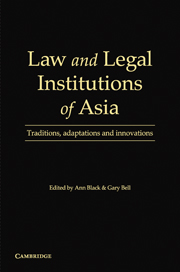 Nicholas W
Barber, "Legal Realism, Pluralism, and their
Challengers"
Nicholas W
Barber, "Legal Realism, Pluralism, and their
Challengers"
EUROPEAN LEGAL METHOD - TOWARDS A NEW EUROPEAN LEGAL
REALISM?, U. Neergaard, R. Nielsen, eds., Copenhagen: DJOEF Publishing, 2013
Oxford Legal Studies Research Paper No. 76/2012
This paper looks at the intersection
of three strands of legal scholarship. Legal realism and legal pluralism can
each trace their origins back to the early years of the last century. After a
comparative decline of interest, they are now back in fashion, with energetic
debate raging over their implications for legal scholarship. Alongside this
revival, a challenger has emerged. Inspired by the work of Ronald Dworkin, a
number of scholars have argued for an understanding of law that, initially at
least, appears to place both realism and pluralism beyond the reach of legal
theory. This paper seeks to defend both realism and pluralism against this
challenge. It contends, first, that the complementary analytical attractions of
realism and pluralism provide reasons why the Dworkinian approach to law ought
not to be embraced. Secondly, even if we were to adopt the Dworkinian account
of law, this would still leave the core insights of realism and pluralism
untouched: even a Dworkinian must accept the need for a complementary
‘sociological’ concept of law to supplement her ‘doctrinal’ account of law.
Finally, under certain conditions even a Dworkinian account of law leaves space
for legal pluralism, though not for legal realism. Perhaps Dworkinians can be
pluralists, too.
Simon Butt and
Luke R Nottage, "Book Review: Law and Legal Institutions of Asia:
Traditions, Adaptations and Innovations, Anne Black and Gary Bell (Eds.)"
LAWASIA Journal, pp. 143-155, 2011
Sydney Law School Research Paper No. 12/78
This is a book review of Law and Legal
Institutions of Asia: Traditions, Adaptations and Innovations by Ann Black and
Gary Bell (eds), Cambridge University Press, 2011. This book provides a
comprehensive assessment of the legal systems of 11 significant Asian
jurisdictions: China, Hong Kong, Taiwan, Japan, Korea, Vietnam, Malaysia,
Indonesia, Brunei Darussalam, Singapore and the Philippines. In systematically
focusing on the way that law and legal institutions 'work' in Asia, or fail to
work (as is often the case), this excellent book fills an important gap in the
literature.
Mark Cammack and
Michael Fenner, "The Islamic Legal System in Indonesia"
Pacific Rim Law & Policy Journal, Vol. 21, No. 1, 2012
This chapter describes the historical
evolution and current structure of Indonesia’s Islamic legal structure. The
current system of Islamic courts in Indonesia is traceable to a late nineteenth
century Dutch decree establishing a system of Islamic tribunals on the islands
of Java and Madura. The decree created collegial courts in which a
district-level religious official called the penghulu acted as chair and was assisted
by member judges chosen from the local religious elite. The courts were
authorized to decide matrimonial and inheritance disputes, but execution of the
courts’ decisions required an executory decree from the civil court. The system
was expanded to south Kalimantan in the 1930s, but at the same time the
jurisdiction over inheritance was transferred to the civil courts. At
independence, the Islamic judiciary was placed under the authority of the
Ministry of Religion, which used executive powers to expand the system to other
parts of the country. It was not until 1989 with the passage of the Religious
Judicature Act that the existence of the courts was guaranteed by statute. The
1989 Act also vested the courts with enforcement powers and mandated changes in
the organization and staffing of the courts modeled after the parallel system
of civil courts. The substantive jurisdiction of the courts has also been
expanded to include inheritance cases as well as a so far little-used power to
decide cases involving economic transactions based on Islamic law. In 2004, the
administrative supervision of the Islamic judiciary was transferred from the
Ministry of Religion to the Supreme Court. In 1999, the province of Aceh was
granted special autonomy status that included the authority to enforce Islamic
law in areas beyond the established jurisdictions of Shari‛a courts in the rest
of the country. These developments add a new dimension to the institutional
structures for the practice of Islamic law in the country.
Maksumilian T Del
Mar, "Legal Fictions and Legal Change"
Queen Mary School of Law Legal Studies Research Paper No. 128/2012
















![[optional image description]](http://cdn.theatlantic.com/static/mt/assets/science/Screen%20Shot%202013-01-08%20at%204.05.13%20PM.png)